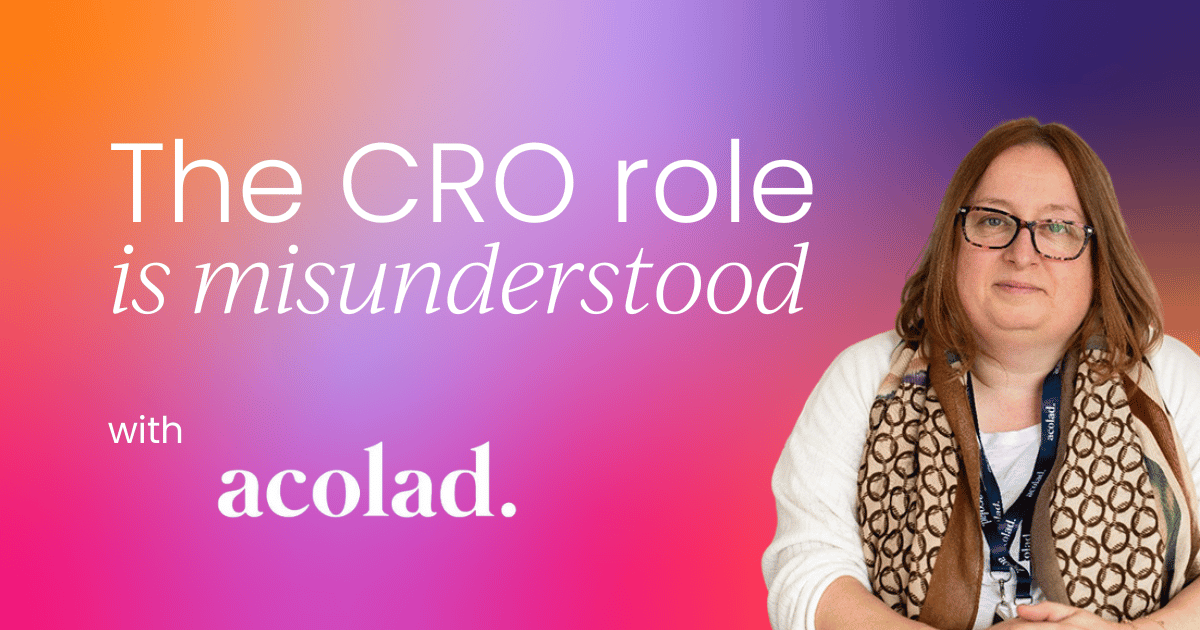When you hear "Chief Revenue Officer" (CRO), what's the first thing that comes to mind? If you’re thinking of someone solely in charge of sales, you wouldn’t be alone. But here’s the thing: there’s so much more to the CRO role than just driving sales.
I’m Grainne Maycock, Chief Revenue Officer at Acolad Group. In my role, I get to work across functions, across countries and cultures, and across a lot of complexity – and I love it. But one thing I’ve found consistently, regardless of geography or company size, is this: the CRO role is often misunderstood.
So in this article, I’m going to aim to add some clarity around the CRO role. I’ll explain how it goes beyond sales, encompassing everything from what you sell, the technical and services solutions that you select for market optimization, to your marketing and positioning strategy. I’ll share my journey, offer insights on collaborating with other C-suite leaders, and discuss how the role continues to adapt.
So, whether you’re building the engine, supporting the CRO, or aspiring to be one yourself, I hope this gives you a useful perspective.
Let’s dive in!
Understanding the true scope of the CRO role
Let’s start with a simple but important point: a CRO is not the same as a Chief Sales Officer.
As a CRO, I’m responsible for everything from solution ideation to pre-sales, marketing, pricing and positioning to revenue operations, sales excellence, and even managing our company’s Sales Academy. But it doesn’t stop there – my role also involves guiding strategic decisions about what we sell, who we sell to, and how we sell it. It’s all about understanding market conditions and how we evolve our offerings accordingly.
It’s also a deeply cross-functional role. I work closely with our CTO, operations, and field teams to deliver a seamless customer experience. This way, I’m thinking not just about today, but about tomorrow, which is key, especially in a time where AI is changing the landscape fast.
But quite simply, when you take on a CRO role, you’re not just driving revenue. You’re helping shape the company’s strategic direction.
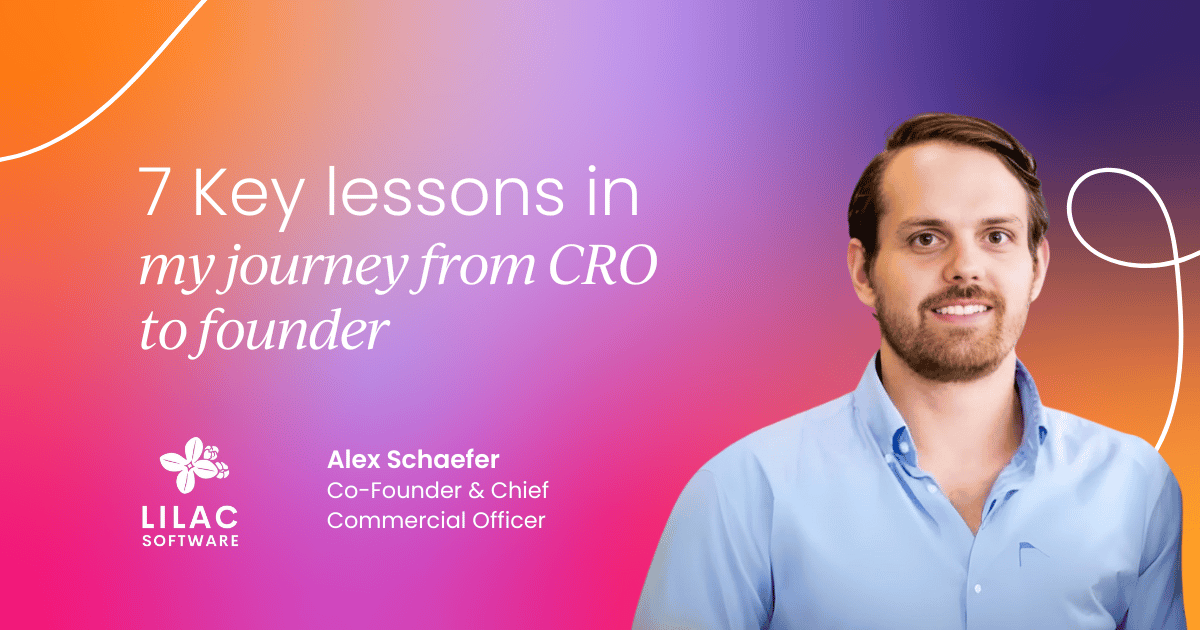
The right time to hire a CRO
I often get asked: When is the right time for a company to hire a CRO?
In my view, the timing is crucial, you can be too early or too late. If you're too early, what you really need is more sales. You need to hire great sellers, understand your markets, and grow your recurring revenue. That’s a sales-focused problem, not a CRO one.
But when you're entering a fast-growth or evolving industry landscape, that’s when a CRO can really make a difference. You need alignment of offerings, removal of tech debt, integration of teams, and a customer-centric approach across everything. That’s more than just sales. That’s about building an engine that’s predictable, scalable, and ready for complexity.
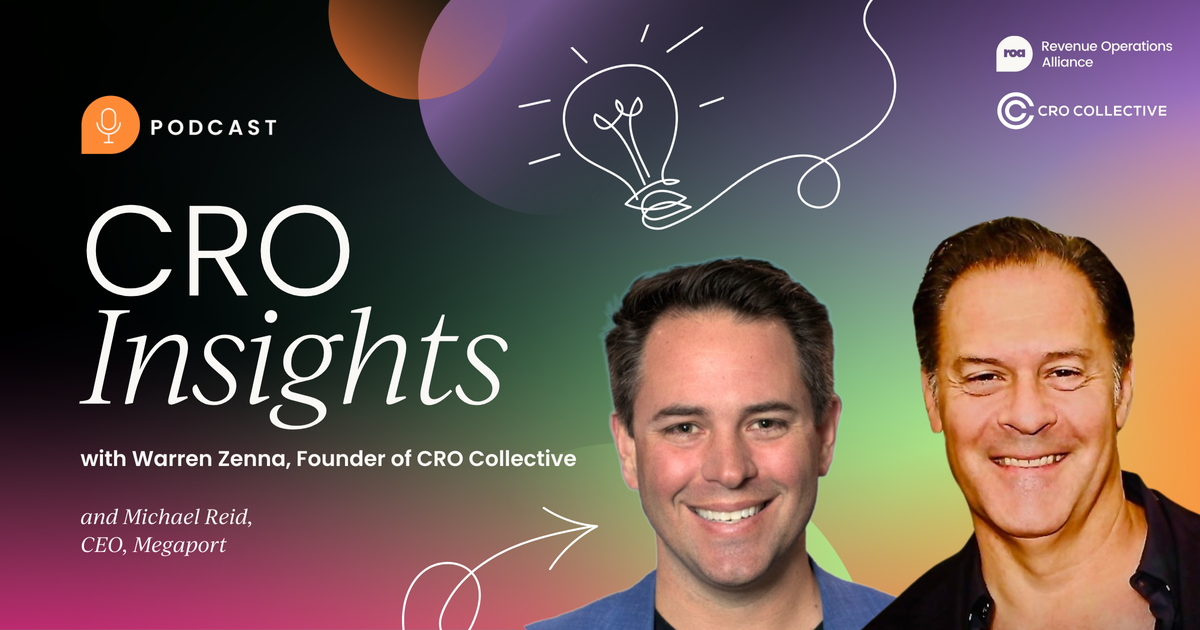
Why the role is still misunderstood
Despite the importance of the CRO role, I still see it being misunderstood. Sales is only one part of what a CRO should own.
The CRO is responsible for removing blockers to revenue. That means working across data, technology, org design, pre-sales, marketing, positioning – the works. Companies sometimes struggle with where these responsibilities sit. But the more clearly the CRO’s role is understood, the more effective the whole revenue engine can be.
I was lucky. My CEO and board understood what a true CRO brings to the table. I didn’t have to convince anyone. But I know that’s not always the case. That’s why it’s so important to educate organizations on the full scope of the CRO role. Once everyone understands the true value of this position, it becomes much easier to work towards common goals.
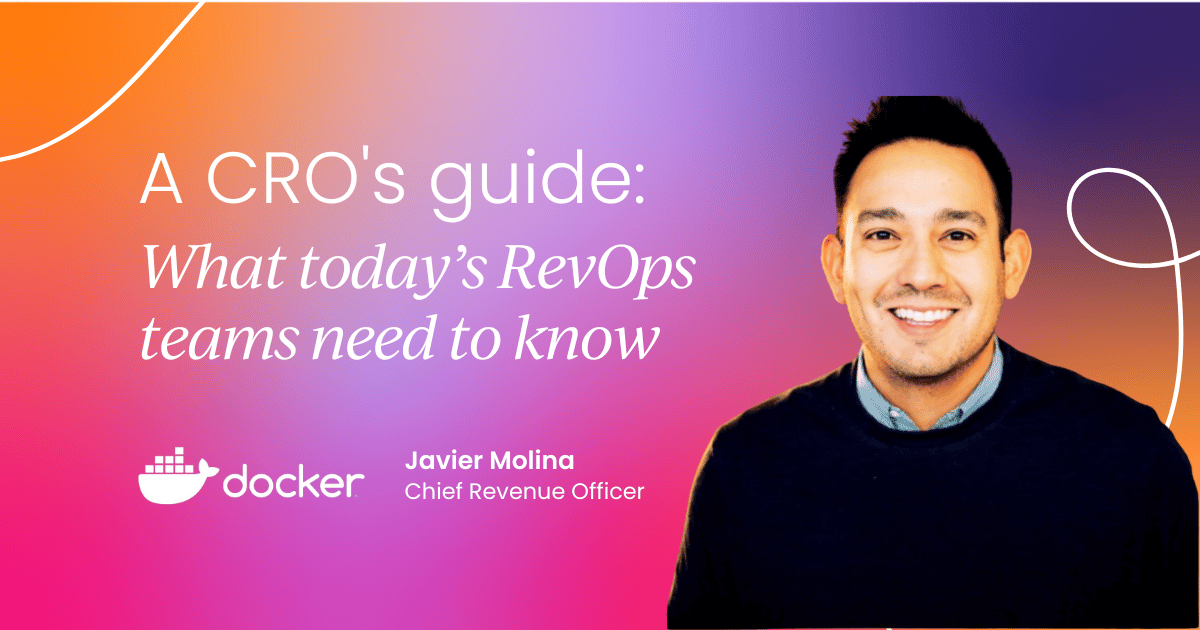
The ideal CRO profile
A lot of CROs come from a sales background – and that’s not a bad thing. You need that passion for revenue and experience in growing sales regions. But it’s not enough.
A great CRO needs to have a well-rounded skill set, one that includes a deep understanding of the market, the ability to collaborate with various departments (especially technology and finance), and a strategic vision for growth.
You also need to understand technology and how it supports your GTM strategy. You need to be able to speak your CFO’s language and understand financial levers like pricing, profitability, and EBITDA (earnings before interest, taxes, depreciation, and amortization). You need to align closely with your CEO and other C-suite leaders, and most of all, you need to have a customer-centric view of the market.
In short, the ideal CRO is someone who can look at the bigger picture and understand all the ingredients that go into creating a successful revenue engine. This isn’t a hero role. It’s a vision-execution-alignment role. You’re there to help the company build the future.
We all have a shared goal: driving growth. By working together, we can ensure that our efforts are aligned, and we can remove any barriers that might prevent us from reaching our objectives.

How the CRO role evolves as the company grows
As companies scale, demands change, and the role of the CRO evolves. When you’re in the early stages of growth, the focus is on building systems and processes that will help the company achieve its revenue goals. But as the company matures, the role of the CRO becomes more about optimizing those systems and ensuring that revenue generation is predictable, efficient, and sustainable, rather than focusing on transformation.
The strategy of the business dictates what’s next. Whether it’s expansion, exit, or entering new markets, the CRO role flexes to support that vision.
You also can’t talk about evolving and the future of revenue without talking about AI. From pipeline analysis to forecasting to sales enablement, AI is already changing how we work. It’s about doing more with less, identifying patterns faster, and unlocking efficiencies.
But it’s not just about AI in the CRO role – AI is reshaping every function we touch, and that means the CRO needs to care deeply about technology. Not just the hype, but the practical application. What’s real, what drives impact, and what talent do we need to make it work?
We also need to think about how AI changes who we hire. What’s the skill profile of a future sales leader? A future RevOps pro? These are questions I’m already asking. You need to ensure that your team is not only equipped with the right skills but also aligned with the company’s long-term vision.
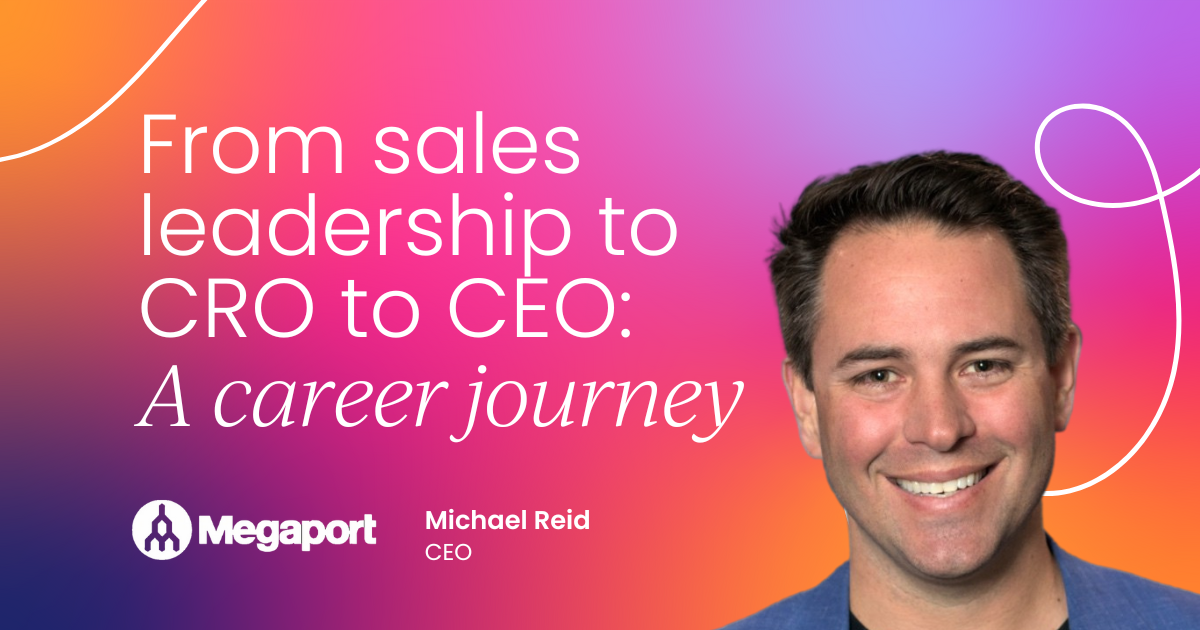
What makes a great CRO?
So, what does it take to be a great CRO? My take is that it’s more than just having the right technical skills or revenue expertise. It’s about having the right mindset, leadership ability, and a passion for driving growth. As a CRO, you need to be a visionary who can inspire others, unblock challenges, and align teams across departments to achieve common goals.
Strength of character is key. How you lead and how you interact with your team and the various teams across the organization will determine your success as a CRO. You need to be able to motivate and empower those around you to do their best work, even in challenging situations.
A great CRO also understands the importance of building strong relationships with other C-suite members, especially the CEO, CTO, and CFO, as well as with external stakeholders like investors or boards.
Ultimately, being a great CRO is about understanding what needs to be done to drive growth and having the ability to execute on that vision. It’s a tough job, but it’s also incredibly rewarding.
Final thoughts
Being a CRO is, in my view, a rewarding and challenging role that gives you insights and influence across a great number of areas. You get to shape strategy, solve complex problems, and work across every part of the business.
Empowering teams to be the best they can be, to innovate, drive solutions, and succeed is core. Those you work with should feel a sense of clear vision, purpose, energy, and appreciation for what they do as part of that vision. The amazing teams we hire, promote, and collaborate with are the leaders who execute on that vision.
But it only works when the role is clearly defined, well understood, and properly supported. For those of you in RevOps, enablement, or aspiring for the CRO seat – keep asking the big questions. Keep building alignment. And don’t settle for a title that doesn’t match the mission.
At the end of the day, the CRO role is about more than just hitting revenue targets. It’s about creating a vision for growth and aligning every function within the organization to support that vision. It’s a challenging and rewarding role, and it’s one that will continue to evolve as the business world changes.
If we want more companies to build great revenue engines, we need to keep clarifying what this role is really about. And that starts with us.
This article comes from Grainne Maycock’s brilliant episode of CRO Insights with host Warren Zenna. Check out their full discussion and the wealth of expert CRO wisdom waiting for you in our other episodes.


 8 min read
8 min read
 Follow us on LinkedIn
Follow us on LinkedIn






